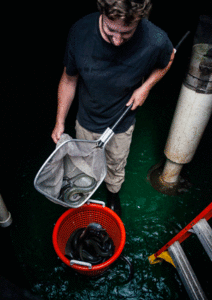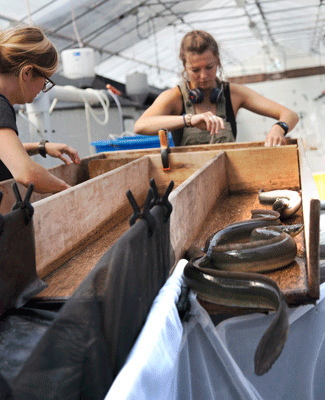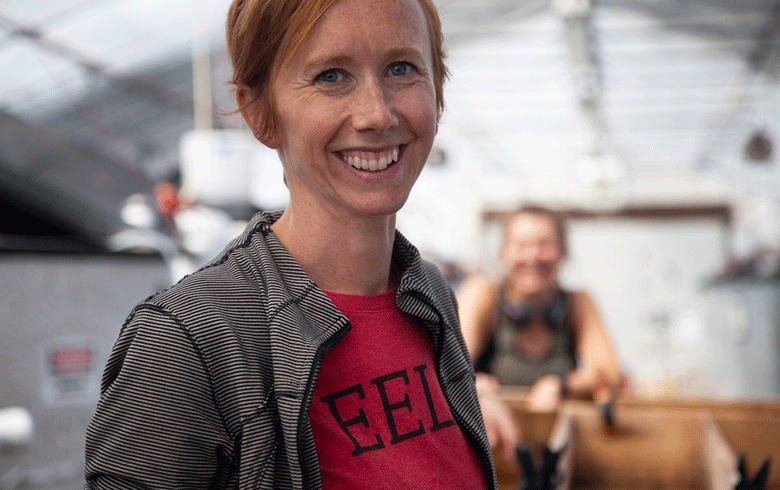Story and photos by Leslie Bowman
Maine’s most lucrative fishery by the pound is its spring elver run, and as such, it seemed an obvious candidate for aquaculture. In Asia and Europe there is a long tradition of eel farming. But it took a woman from Indiana with a degree in aquaculture from Auburn University in Alabama to bring the concept to Maine.
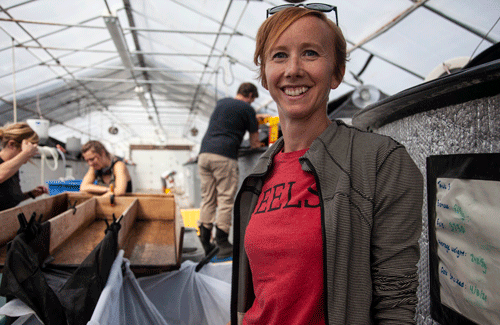
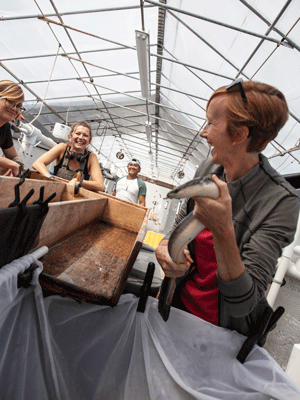
Sara Rademaker’s “Ah-ha!” moment came in 2012 when the price of elvers—also known as glass eels—exceeded $2,000 a pound. She had been searching for a land-based aquaculture candidate and found it.
After raising 100 elvers to market size in her Thomaston basement, her American Unagi business is now building a full-scale growing facility in the Waldoboro industrial park
The business won support from the University of Maine, first at the Darling Center in Walpole, and then, for the past three years, from the Center for Cooperative Aquaculture Research in Franklin. ACE, a company based in the Netherlands, designed the recirculating system the facility will use at its new plant.
Until the new plant is completed, Rademaker and her crew are harvesting mature eels for market in Franklin. At one time, all elvers harvested in Maine were sold to the Asian market for their grow facilities. Now a portion of the state quota of 9,688 pounds will be allocated for domestic production.
In the wild, an eel may take up to 40 years to reach maturity and return to the sea for breeding. Rademaker has been able to raise eels to maturity in about a year. The eels have a 1.4 pound of feed to 1 pound protein production ratio.
American Unagi is currently supplying restaurants in the Midcoast and Portland, where chefs are pleased with the fresh local product. Among the elver fishermen, John Seeley and Susan Boutin recently tasted some local smoked eel and said it was “pretty good.”
